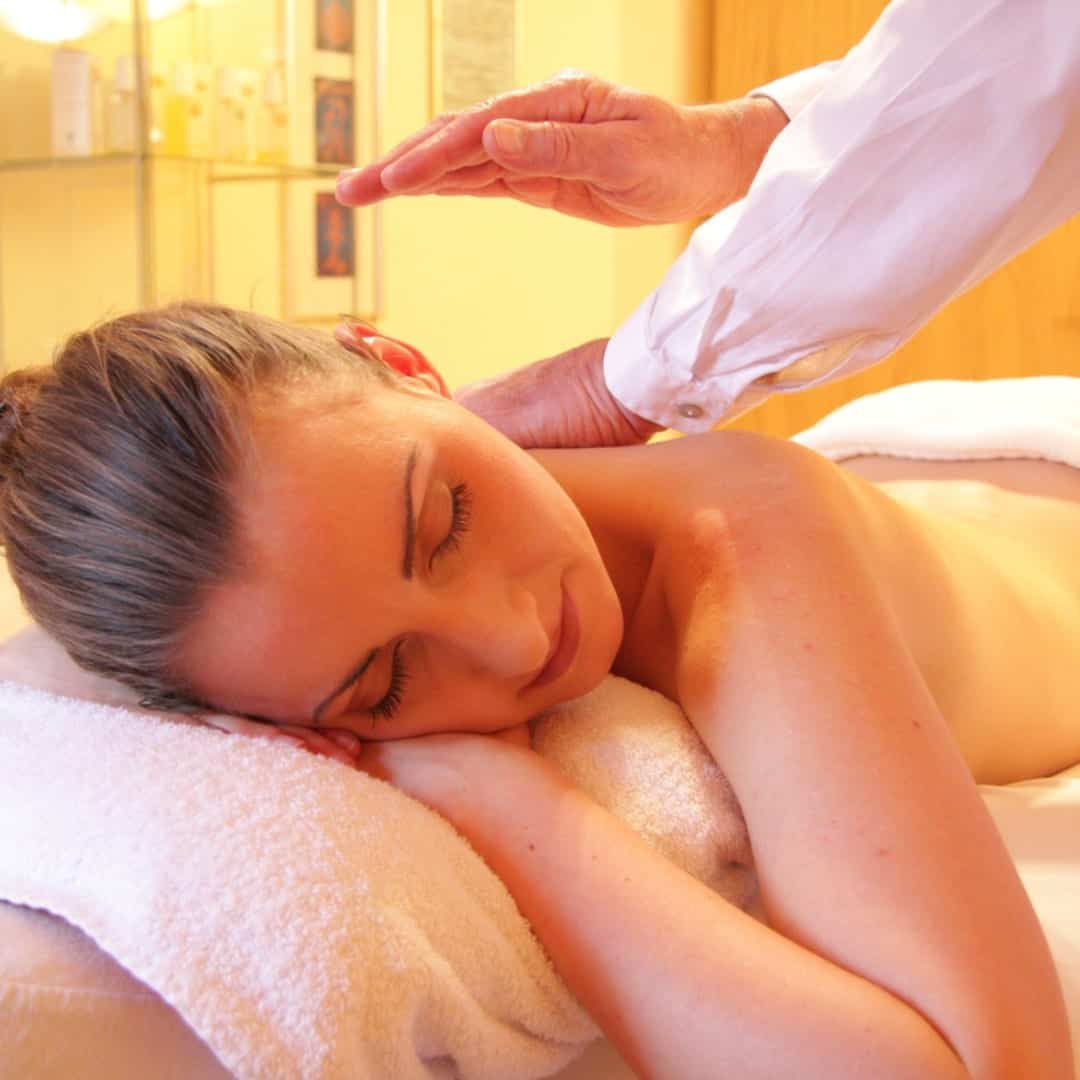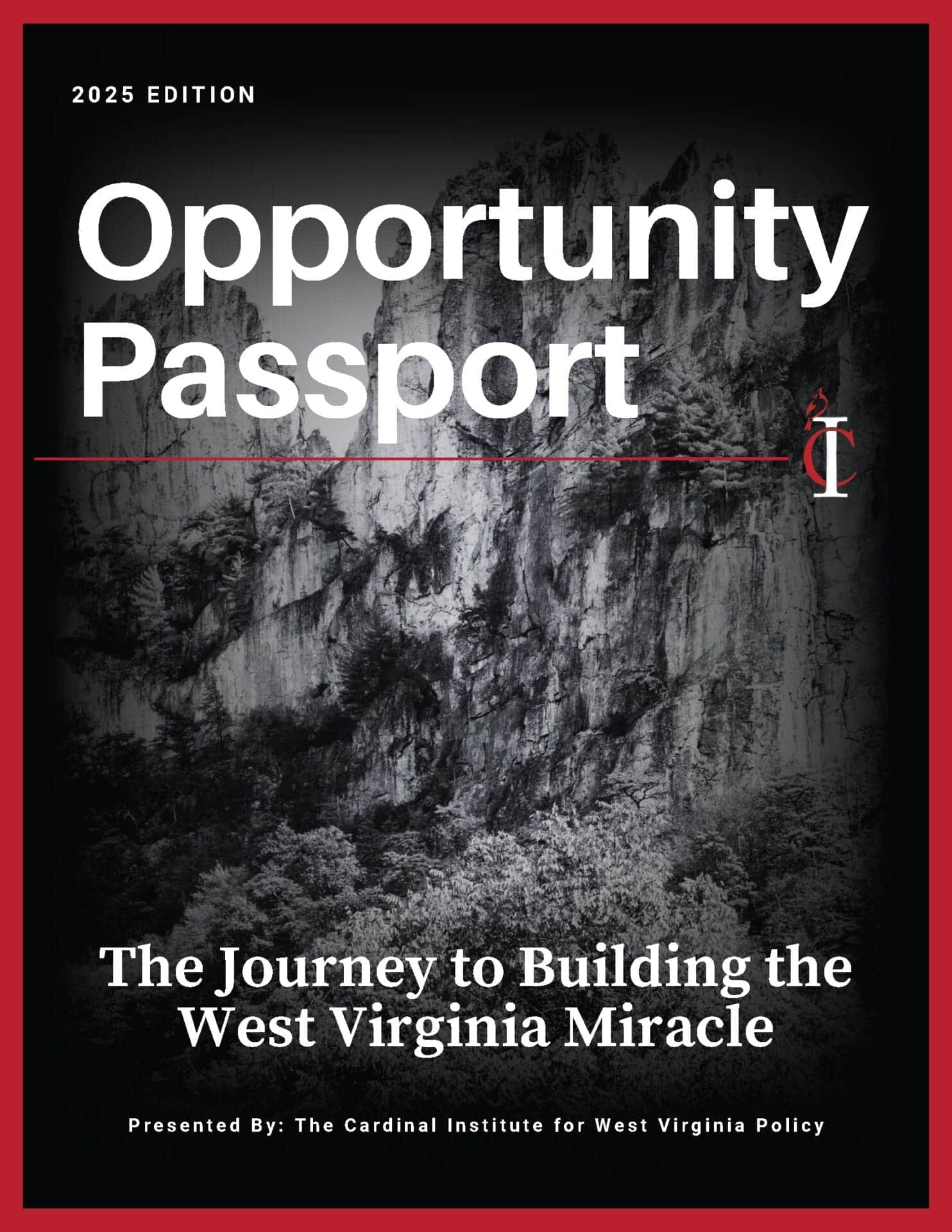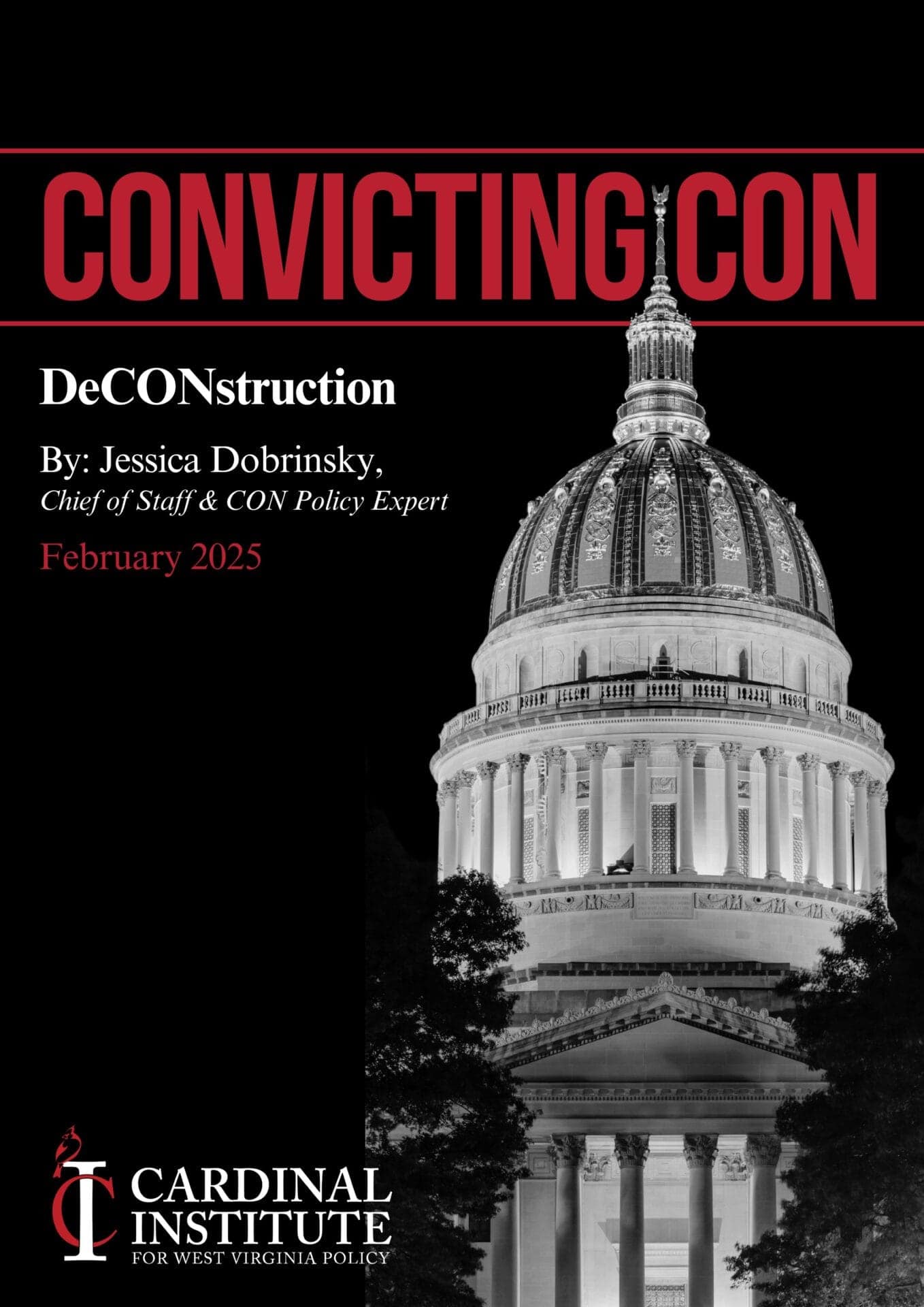
A Mountain to Climb: The High Barriers of Occupational Licensing in West Virginia
Cardinal Team
Along with its partner, the Knee Center for the Study of Occupational Regulation at Saint Francis University, the Cardinal Institute for West Virginia Policy released the final results from its study on the occupational licensing regime in West Virginia this week. In the study, we looked at West Virginia’s occupational licensing burdens compared to its two most populous neighbors: Ohio and Pennsylvania.
Before we get too in the weeds, let us look at some top-line results from the study:
• West Virginia has higher initial licensing fees than PA and OH for 18 of the 25 high barrier occupations. Eight of the occupations have fees that are more than $100 more than the comparison states.
• West Virginia has higher renewal fees than PA and OH for 21 of the 25 high barrier occupations. Ten of the occupations have fees that are more than $100 more than the comparison states.
• West Virginia has 38 licensing boards and commissions. This is 17 more than Ohio and 9 more than Pennsylvania.
• Pennsylvania has a separate regulatory entity providing regulatory oversight of its licensing boards and commissions. Both West Virginia and Ohio do not provide similar oversight.
You’re likely asking yourself: what is occupational licensing?
In its simplest form, occupational licensing is a requirement to obtain permission from the government in order to pursue the work of one’s choosing. Did you get your hair cut at a salon or barber shop? They had to obtain a permission slip to perform the act. What about a pedicure? Your nail technician had to take some expensive, time-consuming classes and tests to perform that service for you.
“So, what?”

Well, I’m glad you asked.
There is an important moral question that one must consider: should a private citizen be forced to obtain the government’s consent before he is allowed to work? To put it another way, “life, liberty, and the pursuit of happiness … assuming you can check enough boxes to satisfy a bureaucrat in your state capital?”
Occupational licensing is prevalent in a wide-ranging variety of occupations from veterinarians and surgeons to equine masseuses, interior decorators, and florists – and many, many occupations in between. In fact, the growth of occupational licensing over the last sixty years is incredible. In the 1950s, it was estimated that 5 percent of occupations required a license.
(Fun fact: West Virginia played a key role in the growth of occupational licensing. In 1889, a key United States Supreme Court ruling in the case of Dent v. West Virginia said that states had the authority to regulate certain occupations.)
Today, there is some debate as to exactly how high occupational licensing is, but estimates show between 25% and one-third of all workers being required to obtain an occupational license to work in their chosen field. To put this another way, the number of workers working in occupations requiring a license went from 1 in 20 two generations ago to between 1 in 4 and 1 in 3 today. That’s a significant rise in occupational licensing.
From a basic economics perspective what does this all mean? Occupational licensing artificially raises the barriers to entry for prospective entrants into the field being licensed.
But, why does that matter?
When you restrict the supply of something, in this case labor, you drive up the cost. This means higher costs and fewer options for consumers. Not good. Not good at all. Remember, this is on top of discouraging entrepreneurial West Virginians from getting into an occupation due to the high fees, paperwork, and testing that can be a discouraging and even prohibitive barrier for many people looking to work or start a career.
All of that said, one must avoid overgeneralizing – a compelling case can be made to license medical professionals, lawyers, etc. However, one must work much harder to make a compelling case for licensing occupations like interior decorators, barbers, or florists.
(Side note: I must say, however, that Nobel laureate, Milton Friedman, makes a compelling case for ending licensure in the medical profession. Watch an interesting exchange between Friedman and a doctor: https://www.youtube.com/watch?v=UmVrfbfKBIk)
For decades, West Virginia has suffered from the nation’s lowest workforce participation rate and is always among the lowest in business-creation rates. If we are to reverse this regrettable reality, occupational licensing reform must be addressed.
If you would like additional information on occupational licensing enjoy the resources listed below!
Additional Resources:
- Cardinal Institute Blog
- Friedman on Licensing in General
- Institute for Justice Report
- Knee Center for the Study of Occupational Regulation
Garrett Ballengee is the Executive Director of the Cardinal Institute for West Virginia Policy.







